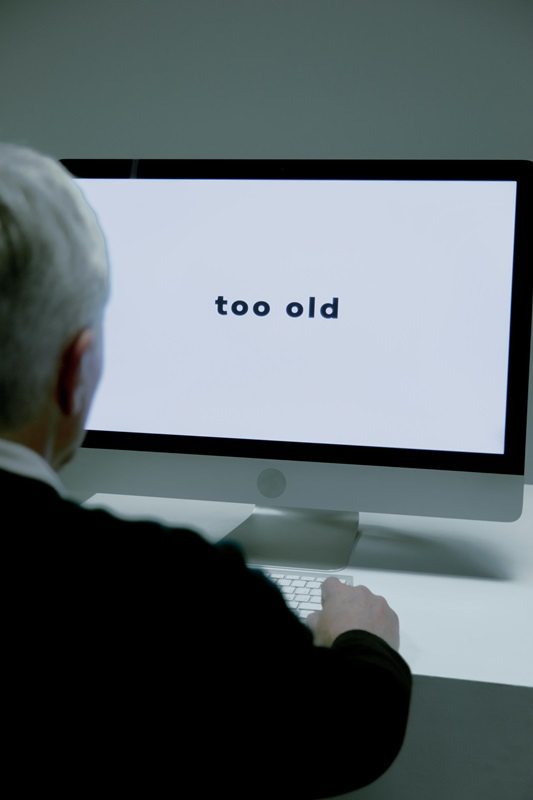
-
 Were you impacted by the Eaton Fire and believe you deserve compensation for your losses?REGAIN CONTROL, SECURE COMPENSATION, AND REBUILD YOUR LIFE IN THE AFTERMATH OF THE EATON FIREClick Here to See If You Qualify For Compensation
Were you impacted by the Eaton Fire and believe you deserve compensation for your losses?REGAIN CONTROL, SECURE COMPENSATION, AND REBUILD YOUR LIFE IN THE AFTERMATH OF THE EATON FIREClick Here to See If You Qualify For Compensation -
 Are you a victim of an unfair or unjust court decision?McGonigle Law cares about your rights.Call us today
Are you a victim of an unfair or unjust court decision?McGonigle Law cares about your rights.Call us today -
 Are you a victim of a personal injury due to someone else’s negligence?McGonigle Law cares about your recovery.Call us today
Are you a victim of a personal injury due to someone else’s negligence?McGonigle Law cares about your recovery.Call us today -
 Are you a victim of unfair insurance claim denial or bad faith insurance practices?McGonigle Law cares about your compensation.Call us today
Are you a victim of unfair insurance claim denial or bad faith insurance practices?McGonigle Law cares about your compensation.Call us today -
 Are you a victim of workplace harassment or discrimination, or have you been wrongfully terminated?McGonigle Law cares about your safety.Call us today
Are you a victim of workplace harassment or discrimination, or have you been wrongfully terminated?McGonigle Law cares about your safety.Call us today -
 Are you a victim of business disputes, real estate disputes, or breach of contract?McGonigle Law cares about your reputation.Call us today
Are you a victim of business disputes, real estate disputes, or breach of contract?McGonigle Law cares about your reputation.Call us today -
 Are you a victim of attorney malpractice, breach of fiduciary duties, or fee disputes?McGonigle Law cares about your future.Call us today
Are you a victim of attorney malpractice, breach of fiduciary duties, or fee disputes?McGonigle Law cares about your future.Call us today

Verdicts/Settlements
Over $250 Million Dollars Recovered.
-
Patel v. Gwire
Plaintiffs Rakash (Ray) Patel and the Patel Family Trust (collectively, the Patels) appeal from a summary judgment in a legal malpractice suit against their former attorney, defendant William Gwire. T...Continue reading -
Fat Face Fenners Falloon v. Lurie Zepeda Schmalz and Hogan
In 2010, restaurant operator Fat Face Fenner's Falloon (Fat Face) filed a lawsuit against its landlord, Pierside Properties, regarding the condition of the premises and various rental charges. Piersid...Continue reading -
$6.1 Million Verdict Against Centro Medico Community Clinic For Wrongful Termination Of Whistle Blower
Clinic fired doctor who reported illegal management practices and exploitation of patientsContinue reading -
Timothy D. McGonigle Obtains Favorable Outcome On Behalf Of Elderly Client In Fee Claim Of $1.5 Million
Principal trial attorney Timothy D. McGonigle defended an elderly client in a lawsuit filed by the client’s former law firm to recover attorney’s fees and costs totaling approximately $1.5 million. Th...Continue reading -
Law Offices Of Timothy D. McGonigle Achieves Dismissal Of $18 Million Case Against Former District Attorney
Principal trial attorney Timothy D. McGonigle represented a former District Attorney in a case against him for fraud and legal malpractice. In the underlying case, a businessman hired the former Distr...Continue reading -
Law Offices Of Timothy D. McGonigle Favorably Resolves Suspension Of Doctor’s Hospital Privileges
Principal trial attorney Timothy D. McGonigle resolved a case involving the suspension of an obstetrician’s hospital privileges in the doctor’s favor. A hospital summarily suspended the staff privileg...Continue reading -
Law Offices Of Timothy D. McGonigle Successfully Defended International Singer From Attempts By Promoter To Prohibit Performances
Principal trial attorney Timothy D. McGonigle represented Alberto Aguilera Valadez, professionally known as Juan Gabriel, an international-renowned singer and composer, in a lawsuit brought by his pro...Continue reading -
Law Offices Of Timothy D. McGonigle Settled Multi-Million Dollar Case After Trial Court Finding Of Duty To Defend By Insurer
Principal trial attorney Timothy D. McGonigle was retained by the insured business owner, who was sued by a hospital for multi-million dollar environmental claims under the Comprehensive Environmental...Continue reading -
Law Offices Of Timothy D. McGonigle Successfully Reversed Ruling In Favor Of Insurer In Bad Faith Case
Principal trial attorney Timothy D. McGonigle represented an elderly couple in a case against their insurance company for claims that included breach of contract and bad faith.The couple’s house suffe...Continue reading -
Law Offices Of Timothy D. McGonigle Obtains $700,000 Verdict In Legal Malpractice Action
Principal trial attorney Timothy D. McGonigle represented an automotive design and manufacturing company in a legal malpractice suit against its former counsel, the prominent intellectual property fir...Continue reading -
$323,069 Award Won By Law Offices Of Timothy D. McGonigle In Legal Malpractice Case
Timothy D. McGonigle, Principal trial attorney with Law Offices of Timothy D. McGonigle, gained a favorable award for a homeowner in a legal malpractice case against her former attorney. Due to her at...Continue reading -
Brokers Retain Law Offices Of Timothy D. McGonigle In Cases Against Merrill Lynch
Principal trial attorney Timothy D. McGonigle represented several brokers in disputes against their former brokerage house, Merrill Lynch. These cases all involve the issuance of loans that were to be...Continue reading -
Law Offices Of Timothy D. McGonigle Retained By U.S. Bankruptcy Trustee In Multi-Million Dollar Case
Timothy D. McGonigle, Principal trial attorney of Law Offices of Timothy D. McGonigle, was retained by a Chapter 7 Bankruptcy Trustee in multi-million dollar lawsuit alleging legal malpractice and bre...Continue reading -
Flora Dolnikov V. Dikran Ekizian
Flora Dolnikov v. Dikran Ekizian, et al: In this case, Flora Dolnikov, an owner of dominant tenement sought damages for interference with her easement, injunctive relief, and a declaration of the part...Continue reading -
Automobile Vs. Cyclist Accident
The firm recently obtained a six-figure settlement and obtained the full limits of underinsured motorist insurance coverage for an injured policyholder who was “doored” by an automobile while riding h...Continue reading -
Horseback Riding Accident
In 2019, the firm obtained a ruling from the Superior Court rejecting the main defendant’s motion for summary judgment based on its primary assumption of the risk defense in a case arising from injuri...Continue reading -
McGonigle Law Wins $3 Million+ Arbitration Award For Cryptocurrency Entrepreneur
McGonigle Law represented the Plaintiff in a misrepresentation and wrongful termination case against Plaintiff’s former company, PeerNova, Inc. and Naveed Sherwani. The case was arbitrated to conclusi...Continue reading

McGonigle Law Trusted California Plaintiff Litigators
With over 38 years of experience, the Law Firm of Timothy D. McGonigle is a tenured legal practice known for its exceptional representation of clients throughout California. We help people who have been hurt by lawyers and big corporations get justice.
Practice Areas
We provide innovative solutions to a wide array of legal disputes including legal malpractice, insurance bad faith, business litigation, and breach of contracts. Our experience & comprehensive legal knowledge align when seeking justice for our clients.
McGonigle
Cares About You.
Discover how we can helpAttorneys
Highly skilled in numerous venues, the firm's attorneys have successfully navigated jury and bench trials, arbitrations, and mediations, as well as appellate matters at all levels of the California court system.

-
Mr. McGonigle represented my husband. He is a kind man, gentle, honest and care about his client. He really did a terrific job! My family are so grateful to him. He is an excellent trial attorney. — Susie L.
-
I have twice worked with Tim and found him professional and easy to work with. His office staff are also very quick and helpful. I would certainly recommend. — Daniel G.
-
Stephanie was a pleasure to work with. She is professional knowledgeable empathetic and so quick to respond!! — Maral A.
-
Stephanie was amazing to work with during this period and was always available and willing to answer my questions and concerns! Thank you so much for helping my family navigate through this time! — Whitney B.
-
Working with Tim and his team was a great experience. They were able to help us navigate a complex legal situation and offered us personal service and expertise throughout the process. Tom was highly involved in every step of the way and Stephanie made sure we were updated every step of the way. We appreciate their time and effort and we’re thrilled our matter was successfully resolved thanks to their help! I truly recommend their team. — Nancy T.
Class Actions/Mass Torts
Class action and mass tort lawsuits are important tools for holding large corporations and institutions accountable for their actions. They allow people who have been harmed to band together and seek justice as a group instead of filing individual lawsuits.
Get a Case
Consultation Now.
SCHEDULE A CONSULTATION-
 ActiveIf you've been discriminated against, don’t let your employer violate your rights any longer. Contact McGonigle Law today for a free consultation. Let us fight for the justice and compensation you des...View Class Action
ActiveIf you've been discriminated against, don’t let your employer violate your rights any longer. Contact McGonigle Law today for a free consultation. Let us fight for the justice and compensation you des...View Class Action -
 Active
ActiveWere you recently terminated and believe you have been a victim of age discrimination?
If you've been discriminated against, don’t let your employer violate your rights any longer. Contact McGonigle Law today for a free consultation. Let us fight for the justice and compensation you des...View Class Action -
 Active
ActiveResolving Legal Malpractice and Fee Disputes with a Commitment to Client Justice
At McGonigle Law, our dedicated legal malpractice team in California advocates for clients harmed by attorney negligence. With over 40 years of courtroom experience, we handle claims involving missed ...View Class Action -
 Active
ActiveWere you harmed by Oxbryta?
Discover how the emerging Oxbryta mass tort litigation is holding pharmaceutical companies accountable for alleged harms to sickle cell patients. Learn who qualifies, the steps to strengthen your clai...View Class Action -
 Active
ActiveEaton Fire
The Eaton Fire has devastated the communities of Pasadena and Altadena, burning thousands of acres and displacing thousands of residents. With zero containment and structures at risk, families and bus...View Class Action -
 Active
ActiveHurst Fire
The Hurst Fire has caused significant devastation in Sylmar, burning hundreds of acres and forcing evacuations. Families and property owners are now grappling with property damage, financial losses, a...View Class Action -
 Active
ActiveJustice for Victims: Holding Dr. Barry Brock & Cedars-Sinai Accountable
Discover how recent allegations against Dr. Barry Brock at Cedars-Sinai have shaken the community and led to a vital legal challenge. In this post, we explore claims of sexual and physical misconduct,...View Class Action -
 Active
ActivePacific Palisades Fire
The Pacific Palisades Fire has caused significant devastation, burning over 2,925 acres with zero containment and tragically claiming six lives. Thousands of residents face evacuation orders, with 15,...View Class Action -
 Active
ActiveMalibu Franklin Fire
The Malibu Franklin Fire has left a path of devastation, and many victims are left to pick up the pieces. If you or your loved ones have suffered losses due to this fire, McGonigle Law is here to help...View Class Action -
 Active
ActiveAre You Facing Disability Discrimination at Work? You Have Rights!
If you've been discriminated against, don’t let your employer violate your rights any longer. Contact McGonigle Law today for a free consultation. Let us fight for the justice and compensation you des...View Class Action -
 Pending
PendingTrabuco Canyon Airport Fire
The Trabuco Canyon Fire has left a path of devastation, and many victims are left to pick up the pieces. If you or your loved ones have suffered losses due to this fire, McGonigle Law is here to help....View Class Action -
 Pending
PendingChiquita Landfill
The Chiquita Canyon Landfill has been the focal point of numerous community concerns, primarily due to the environmental and health issues reported by those living in close proximity. These concerns h...View Class Action -
 Pending
PendingSunshine Landfill
The Sunshine Canyon Landfill has been the focal point of numerous community concerns, primarily due to the environmental and health issues reported by those living in close proximity. These concerns h...View Class Action -
 Pending
PendingE. Coli in Shasta County
If you or your family members were sickened by E. Coli in Shasta County. California, in July 2023, you may be entitled to compensationView Class Action -
 Settled
SettledSoCal Gas Leak
We have helped bring justice to many families affected by the SoCal Gas leak in The Porter Ranch, Northridge, Chatsworth, and Granada Hills Areas.View Class Action -
 Settled
SettledFairview Fire
In the aftermath of the devastating Fairview Fire that swept through Hemet, California, our community seeks accountability and justice for the damages and losses endured.View Class Action











